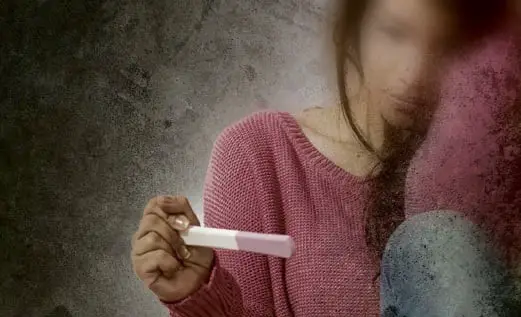Contents
Media Portrayals of Teenage Pregnancy
Media Portrayals of Teenage Pregnancy – Teen pregnancy remains a hot topic in America, with images and storylines depicted frequently across news, film, and television media. But how accurate or nuanced are media representations shaping public attitudes about adolescent parents?
This article examines common stereotypical tropes, the potential harms of one-dimensional portrayals, and recommendations toward more ethical reporting standards when featuring teen pregnancy.
Typifying Teen Mothers
Researchers analyzed over 600 news items and found teenage mothers repeatedly classified by stigma-evoking frames. Coverage focuses on young white unmarried teens expecting babies with little discussion of underlying societal contributors.
Journalists spotlight teen pregnancy costs for taxpayers while linking conceptions to ignorance, reckless behavior, or deliberate benefits-seeking.
Entertainment media similarly perpetuate archetypes of the promiscuous teen girl “knocked up” by a deadbeat boyfriend she tries unsuccessfully to trap into marriage.
Her unplanned pregnancy derails once-bright college prospects as she drops out while the carefree father absconds. Outcomes for film teens who choose abortion focus on enduring psychological wounds, amplifying stigma about terminations.
These patterns propagate public attitudes centered on stereotypes rather than credible portraits illuminating nuanced real-world complexities around adolescent parenthood.
Critical viewpoints get minimized regarding cost barriers teens navigate securing reproductive healthcare, systemic racism affecting outcomes, or resilience shown by many young families. (Media Portrayals of Teenage Pregnancy)
Harms of Media Misrepresentation
Problematic media frames carry serious repercussions for both individual teen families and broader policy landscapes.
Vilifying assumptions about “welfare queen” single adolescents stimulate moral panic, justifying program funding cuts and inadequate social safety nets.
Politicians promote regressive reforms framed around reproductive policing of young mothers’ bodies and choices rather than empowerment or prevention.
For individual adolescents already facing intense scrutiny and bias during pregnancy and early parenting, destructive media tropes take an emotional toll.
Judgment, hostility from families and providers, plus internalized stereotyping exacerbate risks for anxiety, stress during pregnancy, and postpartum depression in teen mothers. Mothers experiencing mental health issues show diminished capacities to nurture infants with sensitivity, undermining child outcomes. (Media Portrayals of Teenage Pregnancy)
Progressive Directions for Ethical Portrayals
Spotlighting teen pregnancy through multifaceted frames grounded in public health research promises progress, reducing stigma and oversimplified public discourse.
Trauma-informed reporting that highlights resilience displayed by young parents bucks assumptions about doomed futures. Showcasing evidence-based policies supporting expectant adolescents promotes a shift toward solutions-focused dialogue.
Platforming teenage voices sharing both challenges confronted and relational sources of strength pushes back against one-dimensional depictions. Nuanced profiles exploring how complex racism and economic inequality exacerbate barriers for youth of color can build public awareness and political will for systemic reforms.
Responsible journalism seeking consent prior to running sensationalized images of teen moms also models crucial ethical standards around reproductive agency and privacy.
Highlighting advocacy groups led by young parents themselves challenges media tendencies to portray all pregnant adolescents as passive victims rather than resilient community experts. (Media Portrayals of Teenage Pregnancy)
Where Progress is Evident
Some film and television content demonstrates gradual culture shifts through more empowering media representation of teenage pregnancy over recent decades.
Series like The Secret Life of the American Teenager (2008-2013) and Jane the Virgin (2014-2019) humanize experiences of unexpected pregnancy during high school and new motherhood’s learning curves with nuance.
MTV reality shows 16 and Pregnant and Teen Mom capturing diverse young families’ real-life navigation of relationships, school, careers, and stigma provide rare windows into life cycles as adolescent parents unavailable through scripted movies.
The audience roots in moms striving against the odds to achieve graduation, launch small businesses, and nurture children’s development despite trauma histories and judgment.
While American media still concentrate teenage pregnancy coverage on heartwarming or heartbreaking personal interest stories, incisive reporting contextualizing the phenomenon remains rare.
As cultural producers, media organizations carry opportunities to craft counter-narratives affirming young families’ rights to health, dignity, and support. There is still progress to make, but glimmers of insight do exist across select outlets, providing foundations for future paradigm shifts.
The time has come to comprehensively re frame teenage pregnancy through solutions-focused lenses: supporting resilience in young families, dismantling barriers marginalized groups face, and enacting policy reforms enabling adolescents to make empowered reproductive choices.
Media makers able to thoughtfully hold these complex truths promise to shape next generation attitudes with compassion instead of blame.
Thanks for visiting Teenage Pregnancy Feel Free to Give your valuable comments in comment section, and do not forget to share our website.

